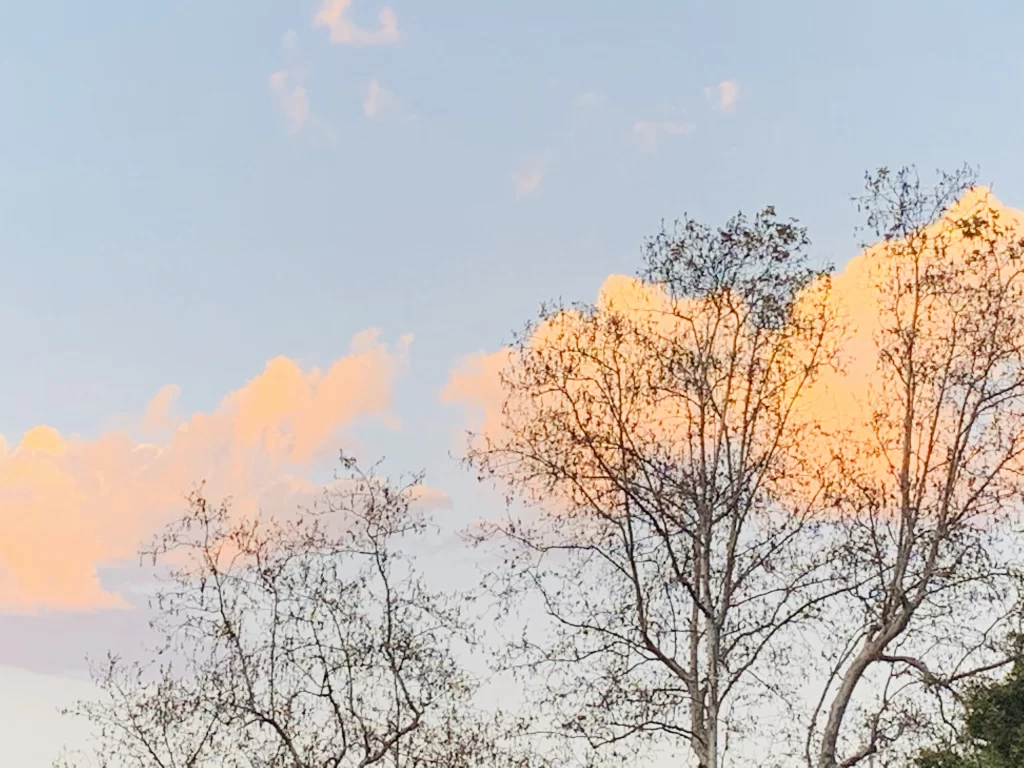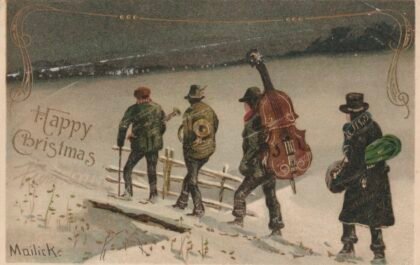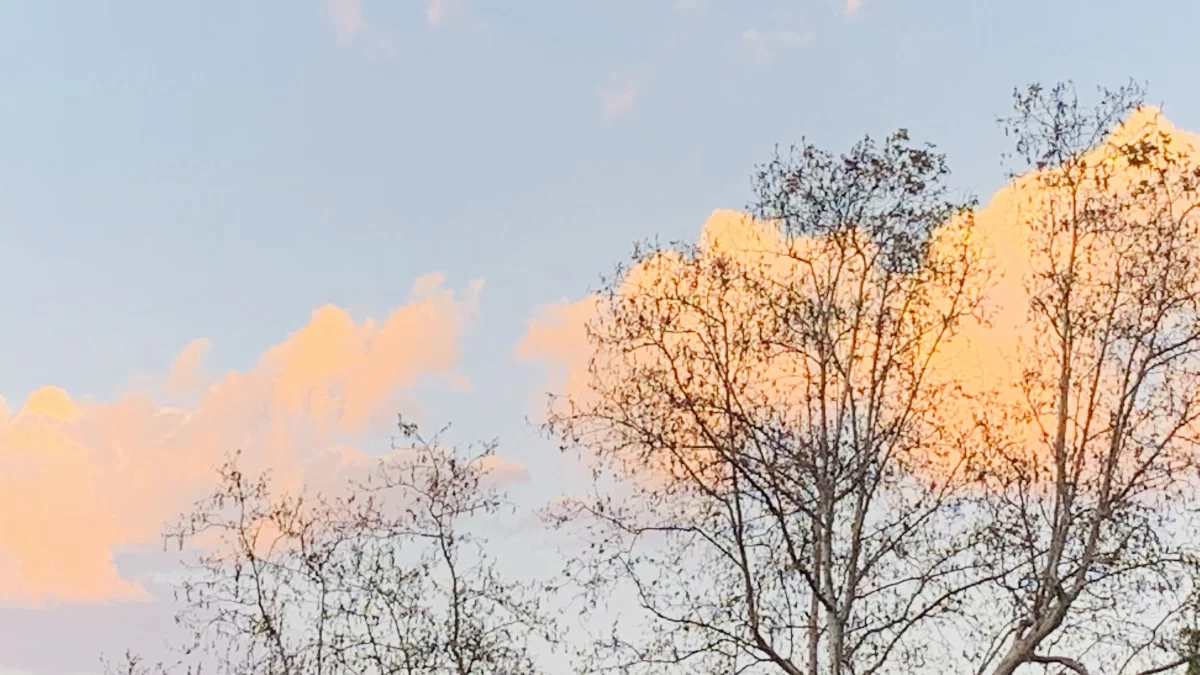Read Chapter One
The Coastwatchers chronicles the adventures of James Ellis Anderson, a young boy from Illinois sent to live with his eccentric aunt in Malibu during WWII. In the tradition of fiction from that period, TNT is presenting this original story by TNT Editor Suzanne Guldimann in serial installments. The first chapter, which introduces James and his Aunt Maddie, debuted in our November 4 issue and is available online. Please join us, as we travel back in time to January 1942.
CHAPTER 2

I woke early to find a large gray tabby cat sleeping on my stomach and the morning sun pouring into my room, making a pattern of tree branches on the opposite wall. My abalone shell was on the bedside next to me. A bird was singing outside, just like it was summer, not January. It had been dark when we arrived last night, and I had been so tired I was almost asleep on my feet. I remember being shown to a white-painted room with a red-tiled floor and a comfortable bed, and eating supper on a tray just like a person in a story—only people in stories don’t usually fall asleep halfway through their bowl of soup.
I liked the room. There was a fireplace on the far wall. The blue and green tiles that surrounded it were painted with pictures of old-time sailing ships. The ceiling was white plaster but with dark wood beams decorated with a kind of vine pattern. It made it feel as if one was in an old Spanish galleon, I thought. On the other wall there was a bookshelf stuffed with books. Above the bookcase was a painting of the ocean, green and blue waves and swirling sea foam. Beside the bed there were three framed movie posters. They were so old I thought they must be silent movies, but they looked exciting: “Terror by Night” one proclaimed. The second was “Pirates of Tripoli,” and the third was some kind of detective story called “I Will Repay.”
The cat woke up, and leaped lightly down from the bed. I got up, too, and went to the window. There was a lawn outside surrounded by big trees. The trees were bare except for a sparse scattering of big yellow leaves, but the grass was green. It wasn’t as cold as Illinois but it was still chilly. I shivered and went looking for my suitcase. There were three doors in my room. The first door I tried led into a hallway. The second was the closet, a big one you walk all the way into. It was empty except for my suitcase. I got dressed before trying the third door. It opened onto a bathroom, the fanciest one I’d ever seen. There was a bathtub and a shower stall, and even another fireplace, and everything was covered in tiles like the ones on the bedroom fireplace, only these had flowers on them.
The cat followed me in and looked meaningfully at another door, so I opened it for him and followed him out into the hall. There were more movie posters here, and more paintings, too. I decided to look at them later, because I could smell coffee and things cooking. I followed my nose to the kitchen. That was a nice room, too: big and light and clean, with more of the painted tiles above the sink.
Mrs Calzada, Aunt Maddie’s housekeeper, was working at the counter in the kitchen. She was a small lady, not much taller than me, but you would never think of her as small. She reminded me a lot of Father’s base commander at home, but kinder and prettier. She spoke Spanish but she had no difficulty making her orders known. When I arrived the night before, she took one look at me and bustled me off to bed. She looked me up and down now, and probably right through, too, but this time, she smiled at me and waved me towards the table. It was a big old farm table, made of unvarnished wood. There were books and papers at one end of it, and a bouquet of big white flowers stuck in an old teapot in the middle of it. I sat down at the end that wasn’t covered in papers and wondered if I should say or do something.
“Can I help with anything, Mrs Calzada?” I asked tentatively.
She replied in Spanish, but I understood that she didn’t need help, thank you very much, and that I should just stay put. The cat leaped up on my lap. That made me feel better, although I could just imagine what Father would say about cats at the table. Aunt Maddie walked in before I could feel too uncomfortable. She was wearing trousers and an old canvas jacket, but she still looked every bit as respectable an aunt as Aunt Charlotte, only a lot nicer and less disapproving. Her dark hair reminded me of my own, and of the picture of my mother that always stood on my father’s desk, but hers was touched with gray.
She smiled at me. “Good morning! I see Mouse led you straight to the kitchen. His food is ready.” She set a dish on the tiled floor for the cat.
“Mouse?” I said.
“He was tiny and gray when I rescued him,” my aunt replied. ‘“I had no idea he was going to grow to be an 18 pound giant. Coffee? Tea? Milk? I warn you, it’s goat milk.”
“Coffee, thanks!” I said. No one had ever offered me coffee before. I felt very grown up.
“Try putting some milk in it, or some sugar, or both,” she advised, after seeing my expression when I tasted it. Or, here, drink this, you might like it better.”
She set a glass of orange juice on the table in front of me. I was prepared for it to be as bitter as the coffee, but it wasn’t the canned kind I was used to.
“It’s from our own trees,” Aunt Maddie said. “And Rosaria made some tamales for you for breakfast as a special treat,” my aunt continued, kindly ignoring my attempts to like the coffee. “And the hens thoughtfully laid us a couple of eggs.”
I’d never heard of a tamale before. It turned out to be kind of a cake of corn meal with a spicy filling, wrapped in a corn husk. I liked it a lot.
Mrs Calzada served the tamales with fried eggs and some kind of red sauce that was too hot for me. It made my whole mouth burn.
“How do I say thank you in Spanish?” I whispered to my aunt.
You say “gracias,” she said. “And if you want to say thank you very much, you could say “muchas gracias.” Try saying, muchas gracias, Señora Calzada. Los tamales estaban deliciosos.”
I tried! My first attempt wasn’t very good, but it made Mrs Calzada smile, so that was OK.
“I never thought about food being different here,” I said.
“I think you’ll find many things are different here,” my aunt replied. “You’ll get used to it. Unfortunately, some things remain the same. I spoke to the school, and they’re expecting you, but not until Monday. I thought you needed a few days to acclimatize.”
In the rush to pack everything up and come west I hadn’t thought as far ahead as school. I thought about it now with a sinking feeling.
“Don’t worry about it,” my aunt advised. She poured coffee for herself and more orange juice for me. “Now, I’d love to know a little more about you,” she said. “‘Come tell me how you live, and what is it you do?’”
I laughed. Aunt Maddie had sent my sister Ali and me Alice’s Adventures in Wonderland and Through the Looking Glass, big beautiful copies with wonderful illustrations, and I recognized that quote.
“I’ve never dyed my whiskers green like the old man in the poem,” I said. “But Ali once dyed her hair sort of purple. She wanted it to be black like mom’s. Father was furious.”
I paused to think. “There isn’t much to know, really. Coming here is the biggest thing I’ve ever done, and it doesn’t really matter how I lived, does it? Because everything is different now.” I felt a sudden ache for the home I had left just days before and that I would never see again.
“Well, in that case, what would you like to be and do?” Aunt Maddie asked.
“You mean, like when I grow up?” I asked. “Father wants me to be a doctor, like he is, only I’m not very good at science and math and stuff, at least, not yet,” I confessed. And the sight of blood makes me sick, I thought, but I didn’t say that out loud.
“That sounds like what he wants,” my aunt said, tartly. “What do you want?”
I hesitated for a moment. “We had a journalist come talk to us once at school, an important one who wrote for the Chicago Tribune,” I said hesitantly. “He was there to tour the base, but he took the time to come talk to my class, and after that, for a long time, I wanted to do what he did, travel and investigate things, and write, but when I told Father he told me it wasn’t sensible, and that I could never make a living like that. And then he told Aunt Charlotte, and she had kittens about it, so I never told anyone else.”
Aunt Maddie didn’t say anything, she just gave me a searching look. Then, she got up and came back with a small, blank notebook and a new box of pencils.
“If you want to be a writer, write,” she said. “Write every day. Write down everything and anything that catches your thoughts. Don’t worry about spelling, or punctuation, or what other people would think if they knew. Write for yourself. And never let anyone tell you that your dreams aren’t worth pursuing.”





